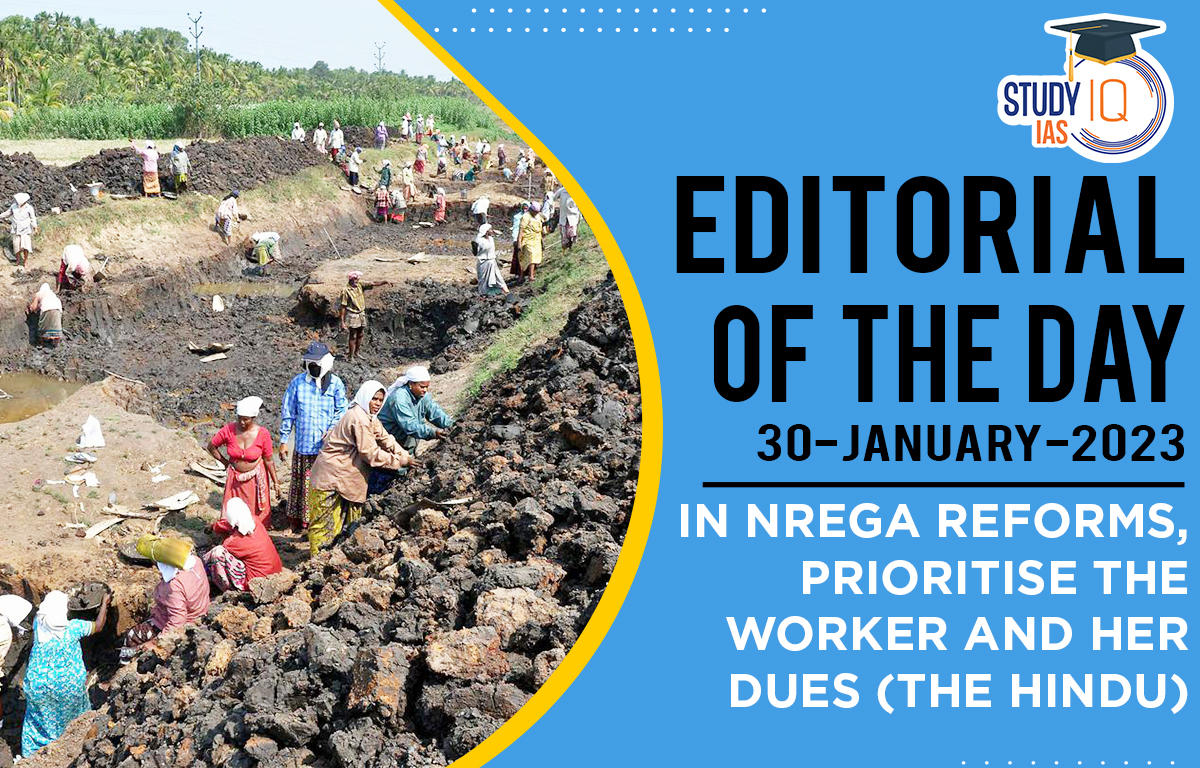Table of Contents
Context of the Article: While reforming National Rural Employment Guarantee Act, focusing on administrative and fiscal efficacy alone would be a flaw.
The Author’s Views
- The author writes about the reforms required in the Mahatma Gandhi National Rural Employment Guarantee Act.
- The author further states that poorer states struggle more to adapt when compared to those that are better off because of weaker administrative capacity.
- The most recent concern of the central government is over the programme’s “regressive” spending pattern, where poorer States spend less NREGA funds than better-off ones.
Author’s Suggestions to Address Issues
- Avoid delay in wage payments: It is required to restore the faith of workers in the programme by addressing delays in payment.
- Currently, there is a complex payment system that requires seven or more functionaries to sign off before payment due to a worker can be approved.
- Strengthen Implementation capacities: There is a need to strengthen the implementation capacities where expenditure is low, instead of curbing expenditure where employment generation is high.
- The online Management Information System of NREGA can flag areas where entitlements are violated.
- Demand-based Programme: There is a need to run the programme like a demand-based law and not a scheme.
- Intermittent and unpredictable fund releases by the central government are one of the fundamental reasons why State governments are unable to ensure the full potential of NREGA.
- Participatory Reforms: There is a need to make discussions on any proposed reforms participatory.
- Building on the spirit of public participation, which gave NREGA an institutional architecture, is needed.
- Top-down Reforms: It is time the Government of India makes an earnest attempt to map the impact of each of its “reforms” on access to and the expenditure of NREGA, particularly in poorer States.
- A slew of “reforms” have disrupted implementation. The central government must be held accountable for the denial of entitlements to NREGA workers due to disruptions.
Case of Bihar
- In Bihar, even after the receipts for work demand applications, worksites are not opened on time, and the work provided does not match demand.
- The Kaam Mango Abhiyan was launched by the Ministry of Rural Development in 2013 due to the declining demand for work under NREGA).
- Unfortunately, the historic numbers of workers demanding work were let down by the Ministry because funds to honour the demand were not released to States in time.
Conclusion
- Given the unique financial needs of this programme, the General Financial Rules need to be reimagined so that budgetary allocations remain flexible to the need for funds by States in response to demands for work.
- Reforms to NREGA must prioritize the access of workers to entitlements with ease and dignity, rather than focus on administrative and fiscal efficacy alone.


 Current Affairs 25th April 2024 for UPSC...
Current Affairs 25th April 2024 for UPSC...
 Editorial of the day (25th Apr): UK's Rw...
Editorial of the day (25th Apr): UK's Rw...
 Telangana Judicial Recruitment Notificat...
Telangana Judicial Recruitment Notificat...

















